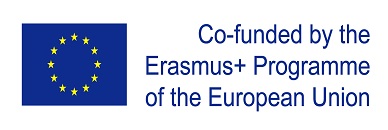Context/Background of the project
According to the report on “How to prevent and tackle bullying inside and outside schools”, commissioned by the European Commission and in line with the Paris Declaration, bullying is a common issue in all EU states. As school bullying and cyberbullying is today present in many forms, schools can provide a place where young people learn the skills and competences that will help them to resolve conflicts and issues in a peaceful manner and learn to live with diversity on a daily basis. Therefore, schools from 6 countries decided to set up this project, whose aims are to investigate about these manifestations and to realize and apply new and effective strategies to prevent them, to create a tolerant culture and to promote a democratic school attitude.
Objectives
The objectives strived for are:
- acquire social, civic and intercultural competences and energetically promote democratic values, fundamental rights as well as active citizenship;
- enhance critical thinking and media literacy to develop resistance to all forms of discrimination and violence;
- promote intercultural dialogue and encourage cooperation through all forms of learning in cooperation with other relevant policies and educational stakeholder and building on student’s sense of initiative and engagement to strengthen social ties as well as generate a sense of belonging;
- promote the acquisition of skills and key competences (digital competences, languages);
- strengthen the professional and educational profile of teachers;
- trigger modernisation/internationalization and reinforce the response of education and training systems and youth policies to the main challenges of today's world.
Number/Profile of participants
The partnership is made up of 6 different schools from Austria, France, Greece, Italy, Portugal and Spain. The target participants are upper secondary school pupils in the ages 15–18 and teachers. Working groups of 16 pupils will be formed in each respective school (in total 96). Every 8th (alternating) pupil as well as 54 teachers will take part in activities abroad and will act as disseminators for their working group and school community.
Activities/Methodology
The following activities are planned:
Content/regional/intercultural preparations
- Videos to introduce the partner schools and their city
- Preparation of interdisciplinary teaching materials, which are designed in a way that partner schools can integrate them in their own lesson plans
- Regional/intercultural preparation of the student exchange
- Internal/external dissemination events
Transnational learning, teaching and education activities
- Job Shadowing/Conferences
- Presentation/exchange of the tests implemented and their results
- Documentaries/interviews, after study visits at the local Bullying help centre.
- Awards for best creative products
- Internal/external dissemination events
- Exchange with non-participating institutions via Blended Mobility
Description of results
The following results are planned: project website, Facebook/YouTube account, various lessonThe following results are planned: project website, Facebook/YouTube account, various lesson plans, videos, PP-presentations, brochures, e-booklets, guidebook, manual for educators, etc.The OER dissemination of all project results is planned, so that these can be integrated into theschool curriculum in other schools and countries.
Description of impact envisaged
The results strived for are as follows:
- Deeper understanding of the themes of “Bullying, Cyberbullying and violence at school”
- Development of innovative integrated approaches promoting EU values, new or improved practices to cater for the needs of disadvantaged groups, fostering active citizenship and social integration, enhancing intercultural understanding and a sense of belonging to a community
- Improvement of skills and key competences (digital competences, languages) through formal/nonformal education in a LLL perspective
- Strengthening of teaching staff‘s didactic skills
- Improved internationalization
- Sensitizing and making society aware of the European dimension of education and of its priorities
- Improvement of attractiveness and visibility of the school’s location
Longer term benefits
After the completion of the project, material as well as immaterial results will continue to be available and can be used by further stakeholders. In addition to that, appropriate tools will be implemented, which constitute a substantial and economic resource for ensuring sustainability. As a result of the activities realized and the achievable results, the following additional long-term benefits can result from the project:
- A change of mindset of the participants involved in the project, resulting in a greater knowledge, a better understanding of the topic and willingness to be more active in their society
- Impulses for further development
- Inspiration for third parties to participate in future Erasmus+ programs
- Transfer of project results to new areas
- Promotion of the EU values





